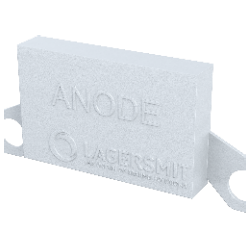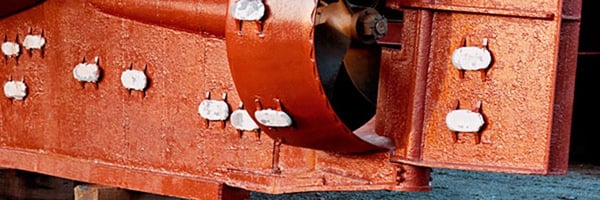ANODES
Anodes protect the submerged part of vessels against corrosion. The anode blocks will sacrifice themselves and protect the liner and housing parts from corrosion.
ADVANTAGES
Protection against corrosion
Complies with the VGP and VIDA regulations
Environmentally friendly
HOW ANODES WORK
Corrosion is an important issue regarding the maintenance of a vessel. The anodes protect submerged metal structures in vessels from galvanic corrosion. This form of corrosion occurs when two different metals in a conductive liquid (such as water) come close together. Anodes will make sure that the liner and housing parts don’t corrode.


MATERIALS
Anode blocks are mostly made out of aluminium, but zinc is another option. The traditional zinc anodes contain percentages of highly toxic cadmium, a heavy metal whose use and disposal are becoming increasingly restricted and regulated. Therefore, vessels have to change from zinc to aluminium anodes according to the VGP/VIDA regulations. The choice between materials depends on where your vessel operates; aluminium anodes are suitable for saltwater.
VGP/VIDA REGULATIONS
According to the VGP/VIDA regulations, vessels have to change from zinc to aluminium which is less toxic to the extent technologically feasible economically practicable and achievable. If zinc is used after the first dry-docking after 19 December 2013, then the reasons why aluminium was not selected need to be properly documented. Ship owners are advised to select aluminium anodes where this is possible. If you need to comply with the VGP/VIDA directives, we provide environmentally friendly aluminium anodes at request.





